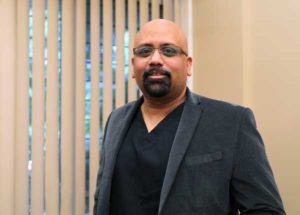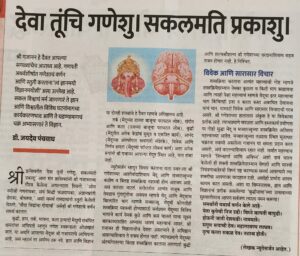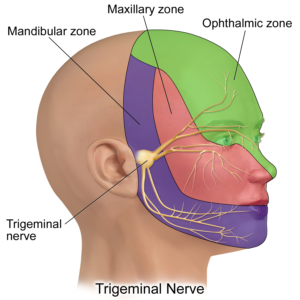On the occasion of Trigeminal Neuralgia Awareness Day, Dr Jaydev Panchwagh says: “Trigeminal Neuralgia is an often misunderstood disease, especially in the early phase, when a diagnosis is not established. It is characterised by severe facial pain that is agonising enough to warrant thoughts of self-harm. It is therefore known as ‘ Suicide Disease'”. He an eminent Neurosurgeon in the city of Pune and an internationally acclaimed specialist in MVD surgery, for Trigeminal Neuralgia and Hemifacial Spasms.

In this article written by Dr Jaydev Panchwagh on the same subject, he has discussed various aspects of this deadly disease.
Trigeminal Neuralgia Awareness Day
October 7th is known as World Trigeminal Neuralgia Day. In fact, the entire month of October is recognised as Trigeminal Neuralgia Awareness Month. On this occasion, Dr Jaydev Panchwagh has actively organised many seminars, public education lectures, interactions and also written a book that will be published shortly.
Medication is generally the mainstay in treatment of Trigeminal Neuralgia. But there are other options including a surgical one. A promising option that has the greatest potential to permanently cure it is MicroVascular Decompression Surgery (MVD Surgery).
This is what he has to say:
You can also listen to the experience of many patients in this talk as well.
Trigeminal Neuralgia-some facts
Trigeminal Neuralgia is a neurological condition that causes severe facial pain. Unfortunately, it is often misdiagnosed due to its rarity and similarity to other conditions. This is why raising awareness about Trigeminal Neuralgia is so important. Here are some facts about this condition that you may find interesting:
- Trigeminal Neuralgia affects the trigeminal nerve, which is responsible for transmitting sensations from the face to the brain.
- The pain caused by Trigeminal Neuralgia is often described as a sharp, stabbing sensation that can last for several seconds or minutes.
- The pain can be triggered by simple activities such as chewing, talking, or even brushing your teeth.
- Trigeminal Neuralgia is more common in women than men and typically affects people over the age of 50.
- There are several treatment options available for Trigeminal Neuralgia, including medication, surgery, and alternative therapies such as acupuncture and chiropractic care.
- Despite these treatments, many people with Trigeminal Neuralgia continue to experience chronic pain and may require ongoing management of their symptoms.
- Trigeminal Neuralgia Awareness Day on October 7th is an opportunity to educate the public about this condition and advocate for improved access to care and support for those affected by it.
If you or someone you know is experiencing facial pain that may be caused by Trigeminal Neuralgia, it is important to seek medical attention and receive a proper diagnosis. With proper treatment and support, it is possible to manage the symptoms of this condition and improve quality of life.

